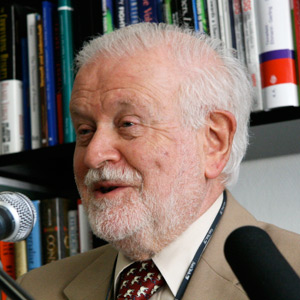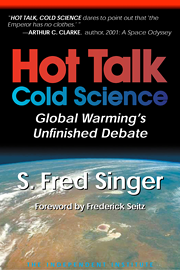Some day an enterprising journalist may tell us just how, just before last year’s election, an unholy alliance of coal-burning (yes!), electric utilities and environmental groups managed to insert a call for mandatory limits on carbon dioxide emissions from power plants into the Bush platform. Such a policy is so obviously at variance with his opposition to the Kyoto climate treaty that one might suspect it was sneaked in last September while cooler heads were nodding. The power companies supporting CO2 caps proclaim that they were only looking for “regulatory certainty”—an odd excuse for more regulation. It is not difficult to imagine other, less noble motives.
It is surprising, however, to find a Wall Street Journal editorial endorsing carbon caps and associated market-based trading of valuable emission rights. One can charitably attribute this misplaced exuberance to a Pavlovian response; economists fairly salivate whenever they hear the magic words “market-based.” But the current science of global warming cannot justify CO2 controls. Doesn’t it follow then that emissions should be reduced only if it makes economic sense to invest in ways to use energy more efficiently?
There is much wrong with CO2 controls—even with voluntary schemes of limiting emissions. Sure, market-based emission trading is more efficient and preferable to command-and-control methods; but if the objectives don’t make scientific or economic sense, it doesn’t matter how elegantly we achieve them.
There is plenty more that could be said. For example: Should we further politicize energy production by inviting interest groups to battle over who sets the caps and how to allocate emission quotas? What base year to use? Do nuclear plants qualify for credits? If the Administration later decides to raise (or abolish) the cap to permit the economy to expand, how to compensate existing holders of emission rights? The successful trading of SO2 credits is not a valid model for CO2 trading; SO2 is not linked to economic growth. A better analogy might be the oil import quota program that enriched certain quota holders during the 1960s. Or for those who don’t remember that particular disaster, how about New York City taxicab medallions?
If you have an industry (or an economy) that’s growing overall and you place a cap on carbon dioxide, you will end up with a market that sends the price of emission rights to the moon. Therefore, the whole scheme will lead to a painful restructuring of the energy industry, including massive destruction of existing capital stock, with natural gas emerging as a clear winner and coal as a loser. Problem is, of course, that coal supplies over half of our electric power; it is a plentiful domestic fuel and cheap. Natural gas is increasingly imported and can triple in price (as it did in California last winter).
But as Senators Joe Lieberman (D-CT) and John McCain (R-AZ) sponsor legislation to impose emission caps on the nation, keep in mind also that the whole scheme is ineffective: CO2 restrictions won’t do a bit for the atmosphere or the climate. Even full compliance with the Kyoto Protocol will only slow down slightly the ongoing growth of atmospheric CO2 levels and make an imperceptible impact on global temperature, about 0.02 degrees Celsius by 2050. A huge cost with no payback. And when it comes to human health, remember that carbon dioxide is not a pollutant; it is not toxic, noxious, or harmful in any way.
The worst part is the economic impact of capping CO2. No matter which of the many possible policy options one chooses, all governmental cap-and-trade schemes amount to a regressive tax on consumers, estimated of the order of $300 to 400 billion a year. (The Bush tax cut is only $160 billion.) The obvious question one should put to its advocates in the Senate: Instead of setting a cap and letting scarcity raise prices for consumers, why not take the equivalent and more transparent route by simply imposing an adequate carbon tax to enforce conservation and limit CO2 emissions? We all know what this means: A doubling of electric power rates and heating costs to households and another dollar in gasoline taxes—for starters.
Economists should love such a tax: simple, efficient, and transparent—with the proceeds flowing into the Treasury instead to privileged industries. But let’s see how many environmentally sensitive politicians are willing to overcome hypocrisy and touch this third rail. The line forms to the right.









